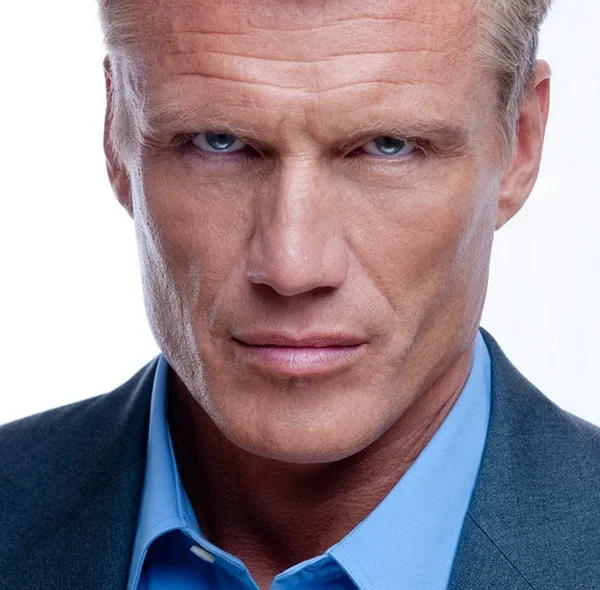Dolph Lundgren’s story reads like an action-packed script—marked by strength, intellect, reinvention, and deep persistence. Born Hans Lundgren in Stockholm in 1957, he carved his early identity not in Hollywood, but in dojo and classroom. A dedicated martial artist, he achieved the rank of fourth dan in Kyokushin karate and ruled Europe as champion in 1980 and 1981. Alongside that physical discipline, he earned a master’s degree in chemical engineering from the University of Sydney and was awarded a Fulbright Scholarship—an academic honor few in action cinema can claim. But fate—in the form of a nightclub encounter with Grace Jones—redirected his path from formulas to film.
Rocky IV’s Ivan Drago remains Lundgren’s most iconic breakthrough. With only a handful of lines—none more memorable than the chilling “I must break you”—he transformed into a screen legend overnight. That role suited his commanding presence and stoic calm, traits he parlayed into a string of action-heavy starring vehicles throughout the late ’80s and ’90s: Masters of the Universe, Red Scorpion, The Punisher, Showdown in Little Tokyo. Even when the scripts were sparse, his physicality and charisma made him unforgettable.
As his career matured, so did his ambitions. The 2000s found him directing and writing his own films—The Defender, The Mechanik, Missionary Man, Command Performance—turning the camera on his own vision. His return to mainstream prominence came with The Expendables series, where that old-school action-star presence felt more relevant than ever, surrounded by Stallone, Statham, and other heavy hitters. Roles in Aquaman, Creed II, Castle Falls—his directorial comeback—and even voice work in Minions: The Rise of Gru and Seal Team showed his evolving scope.
Beyond the screen, Lundgren’s life reveals a hunger for novelty and relevance. He embraced U.S. citizenship in 2024, blending Swedish roots with American identity as he invested in projects like Hard Cut Vodka, applying his chemical engineering talent to creating a Double Gold award–winning spirit. His Olympic connection runs deep too; he served as honorary team leader for the U.S. Modern Pentathlon squad during the Atlanta ’96 Games, drawing from his martial arts discipline and athletic legitimacy.
Personal chapters show complexity too. Despite a prickly relationship with his father as a child, he maintained respect and channeled his stubbornness into drive. He married, divorced, and later found love again; he and his wife Emma Krokdal, with a notable age difference, embraced citizenship together, balancing fame with family in a grounded manner. Earlier, he was diagnosed with—and later beaten—cancer, a silent fight that underscores both fragility and fortitude.
What makes dolph Lundgren so compelling is this: he refuses to remain one note. The tall Scandinavian guard at film’s edge became the multifaceted force of genre, industry, and real life. He lumps old-school action aesthetics with refined intellect, turning bullets into books, fight choreography into directing style, stoicism into scholarship. Over decades, he’s been many things—villain, hero, musician, engineer, family man—but at heart he’s an enduring creator, stubbornly crafting presence on his own terms. In a world eager for fresh action stars, he remains the original.




